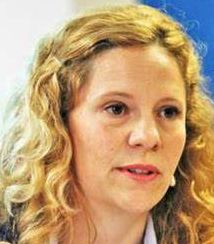



The Premier of the Western Cape, Alan Winde, delivered his annual State of the Province Address, highlighting the province's commitment to diversity, tolerance, and the rule of law. He emphasized the province's achievements in growing the economy, creating jobs, and improving safety. Winde discussed the devolution of critical services from the national government to the province, such as managing the central line train service and attracting private investment to the Port of Cape Town. He also addressed issues of gender-based violence, poverty, and hunger, and outlined the province's efforts to provide support and assistance to vulnerable citizens. Winde emphasized the importance of tourism, infrastructure development, education, and agriculture in driving economic growth. He discussed the province's focus on safety and crime prevention, as well as its efforts to address the energy crisis and respond to the climate crisis. Winde expressed concern about the national fiscal crisis and its impact on service delivery, and called for policy certainty and responsible financial management. He highlighted the Western Cape Government's commitment to clean governance and its track record of good service delivery and fiscal discipline [4a50fe60].
The State of the Province Address aligns with the findings of the Municipal Economic Review and Outlook 2023/24 (MERO) presented by the Provincial Minister of Finance and Economic Opportunities, Mireille Wenger. The MERO report reveals that the Western Cape's Gross Domestic Product per Region (GDPR) is normalizing to pre-COVID-19 levels, with all districts outside of the Cape Metro experiencing growth. This indicates a promising economic recovery in the region. The report also shows an increase in labor force participation and labor absorption rates, indicating a positive trend in job creation. Unemployment rates in rural areas are encouragingly low, which is a promising sign for economic development in these regions. However, the report also highlights the need to consider population growth in planning and budgeting to ensure adequate service delivery and housing supply. The MERO report emphasizes the importance of investment in port infrastructure and equipment to support the agricultural sector, which plays a significant role in the Western Cape's economy. In terms of income inequality, the report indicates that the Cape Metro area has lower income inequality compared to the rest of South Africa. Additionally, the Human Development Index (HDI) is higher in the Cape Metro, suggesting a better standard of living in this region. The report also mentions improvements in education outcomes, such as learner-teacher ratios and retention rates. However, challenges such as teenage pregnancy and malnutrition persist in certain districts, highlighting the need for targeted interventions in these areas. The MERO report acknowledges efforts to reduce crime rates but notes an increase in drug-related crime. This highlights the importance of addressing the underlying causes of crime and implementing effective strategies to ensure the safety and well-being of residents [4a50fe60] [07892ced] [945f689d].
Premier Winde's State of the Province Address underscores the Western Cape Government's commitment to economic growth, job creation, and safety. The address also highlights the province's efforts to address social challenges and provide support to vulnerable citizens. The alignment between the State of the Province Address and the findings of the MERO report demonstrates the province's focus on evidence-based decision-making and strategic planning for sustainable development [4a50fe60] [07892ced] [945f689d].
Meanwhile, in Gauteng, the MEC for finance and economic development, Lebogang Maile, has outlined a plan to turn around the Gauteng economy. The plan includes establishing a provincial state bank, promoting the township economy, addressing high unemployment, and continuing the Nasi Ispani program. Maile stated that the budget for Gauteng is R500 billion and that the province must create jobs and improve the economy with this funding. The Department of Economic Development is intensifying efforts to establish a provincial state bank, which will invest in projects with low private sector investment and high social return. The department is also focusing on promoting the township economy, as it accounts for almost 20% of the country's total employment. Maile plans to facilitate the provision of suitable infrastructure and invest in the manufacturing capacity of township enterprises. Additionally, the Nasi Ispani program, aimed at addressing youth unemployment, will continue and be mainstreamed in the seventh administration. Maile also mentioned that funding challenges faced by nonprofit organizations in Gauteng will be addressed, and the department is considering reviewing how it finances NPOs and instituting three-year funding agreements [106f62ef].
The plans outlined by Lebogang Maile align with the Western Cape's focus on economic growth, job creation, and addressing social challenges. Both provinces recognize the importance of strategic planning, evidence-based decision-making, and investment in key sectors such as tourism, infrastructure, education, and agriculture. The Western Cape's State of the Province Address and the MERO report demonstrate the province's commitment to sustainable development and good governance, while Lebogang Maile's plan for Gauteng highlights the province's efforts to stimulate economic growth and create opportunities for its residents [4a50fe60] [106f62ef].